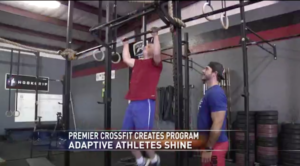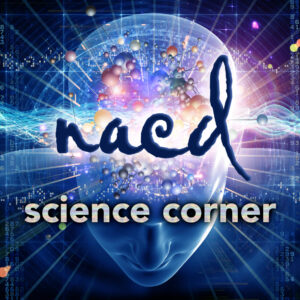NACD: Doing What Works for Down Syndrome

Are you the parent of a child with Down syndrome? If so, then you’re not alone. In fact, Down syndrome is now the most common genetic condition in the United States. No two people with this diagnosis are exactly alike, and raising kids with Down syndrome requires patience and understanding. It can be hard to know what to expect when your child has special needs, but we can provide support to your family throughout every step of the journey.
Chances are that you may be feeling overwhelmed. You want your child to experience the same opportunities and joys as any other person but feel unsure of how to make this possible. However, parenting a child with Down syndrome can be an inspiring journey for both parent and child alike! With our well-researched methods, knowledge, experience, resources, and plenty of support from our coaches and evaluators, it’s possible to reach your goals for helping your loved one reach their full potential.
NACD can help you create a vision for your child’s future and provide you with the tools and support to help turn that vision into a reality.
Bob Doman Discusses Down Syndrome Issues
(Free Seminar)
NACD’s Evolving & Eclectic Approach

NACD has been dedicated over the last several decades to addressing issues that impact on children and adults with Down syndrome. We seek to change public opinion as well as the opinions of parents and professionals about the potential of individuals with Down syndrome. Some of the questions and issues we address are:
Does the presence of ear fluid impact on learning? Yes. Behavior? Yes. Speech? Yes.
Does a low pulse or poor oxygen saturation levels impact on behavior? Yes. Attention? Yes. Learning? Yes.
Does diet impact on attention? Yes. Learning? Yes.
NACD has been working with thousands of children with Down syndrome for over thirty years. We have learned a great deal in that time about the reality of this diagnosis and what it does not mean. The diagnosis of Down syndrome does not mean that there is a genetically imposed limit to a child’s intelligence. It does not mean that there is going to be little or no speech. It does not mean that the child cannot learn at a reasonable pace. It also does not mean that the child with DS is just like every other child with DS.
While there are similar challenges to children carrying this diagnosis—such as a tendency toward low muscle tone and a risk of cardiac problems—there is no one-size-fits-all approach that is appropriate and efficient. The staff at NACD has seen children with DS make the honor roll, graduate from high school, attain meaningful careers and become active participants in the community. We have learned to see each child as an individual and assess his or her current level of function (which is to assess his or her current level of neurological efficiency) and then work from there. NACD knows all children with DS are not alike. We design each child’s program differently according to the current needs and level of function of that individual child.
Because NACD’s approach is eclectic and continually evolving, our prescribed program activities change as we learn new strategies that work even better than the old ones. We are constantly gathering methods proven to work from disciplines that address speech, vision, nutrition, tone-building, and efficient learning. For example, recent breakthroughs in the field of Speech Pathology that utilize a more developmental approach to achieve oral motor function have influenced NACD to alter our approach to oral motor work as well. The NACD staff continues to explore and learn new strategies to keep our programs the most efficient and effective in the world today.
Parent training is at the heart of NACD’s success. Our goal always is to assist parents in helping their children make significant progress in all areas of function including cognition, language, fine and gross motor skills, social interaction and behavior, and academic learning. Every child’s program is tailored to address all of these areas. NACD staff train parents in the implementation of the child’s program and remain available at all times to support parents in their efforts. It is the parents’ determination for their child to succeed combined with NACD’s dynamic program of appropriate intervention that leads to success.
Testimonials From NACD Clients
Down Syndrome: “Bill Davies”
Down Syndrome: “Gregory”
John and the Art of Learning
In Search of Joshua
Scott – A Father’s Story
Down Syndrome: “Daniel”
Down Syndrome: “Cindy”
Our Journey to NACD Changed Our Lives
Related Articles for Down Syndrome

Nicolas Cooke is Physically and Mentally Tough

Developmental/Therapeutic Intervention: Proactive or Reactive?

NACD International Outreach – Bulgaria

NACD Math Program

News from NACD Romania: A Message for Us All

Middle Ear Fluid: Developmental Effects on Children with Specific Attention to Those with Down Syndrome

NACD Science Corner Vol. 14 – Why Do People with Down Syndrome Have Less Cancer?

Science Corner Vol. 1: Cracking the Code Behind the Cognitive Development Challenges of Down syndrome
NACD Announces Ambassadors for Down Syndrome
Abby’s Road
NACD Down Syndrome Website
For even more information about how NACD does what works for Down syndrome, visit our mini-site here: http://downsyndrome.nacd.org

